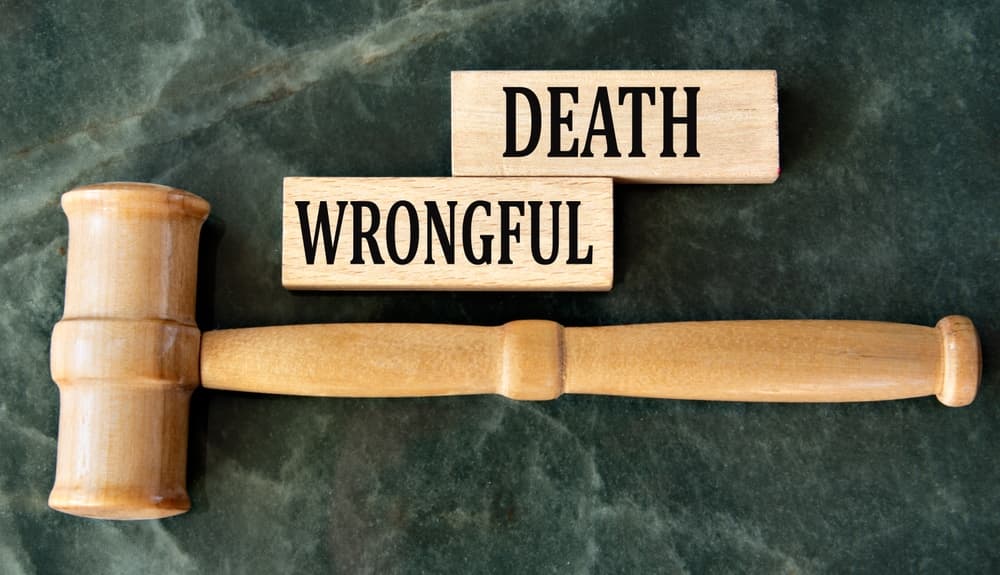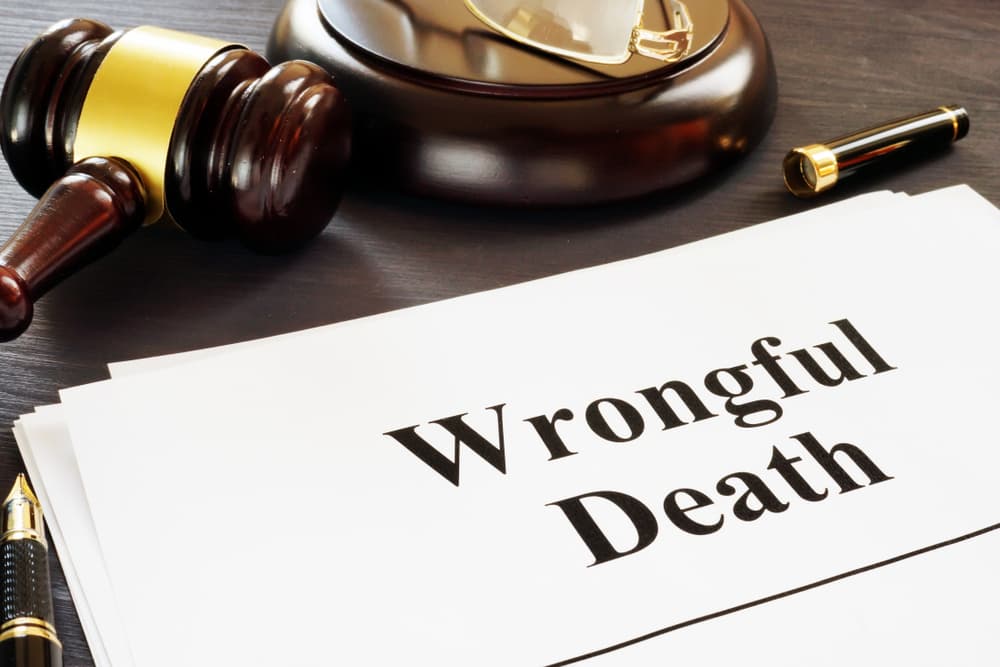- December 26, 2024

Losing a loved one because of someone else's negligence or recklessness is among the hardest experiences anyone can face. Families who experience this loss may be eligible for financial recovery through a wrongful death claim, a legal avenue that offers compensation to address both economic and emotional losses.
An important aspect to understand is Michigan's statute of limitations, which generally allows three years from the date of death to file a claim. You need to understand these deadlines because missing them can permanently bar your right to compensation.
If you're grieving a tragic loss, consider reaching out to a wrongful death lawyer who will fight for your rights and ensure your claim is filed within the required timeframe.
Contact us online, and let us safeguard your rights and future.
Typical Settlement Ranges in Wrongful Death Cases
While each wrongful death case is unique, examining some common settlement prices can offer some perspective on what families might expect.
- Car Accidents: Fatal car accidents are one of the most common sources of wrongful death claims. In cases involving clear liability, such as DUI crashes, settlements often range from $500,000 to $5 million or more. Michigan's no-fault insurance system adds complexity to these cases but can also provide additional avenues for compensation.
- Medical Malpractice: Wrongful death cases arising from medical errors or neglect may lead to substantial settlements, though Michigan law caps non-economic damages. Despite these caps, settlements can vary widely, from $1 million to upwards of $10 million, depending on the type of medical error, the institution's policies, and the extent of evidence showing medical negligence. These cases often involve multiple defendants and insurance policies, potentially increasing the total recovery.
- Commercial Vehicle Accidents: Fatal accidents involving commercial vehicles, like trucks, frequently result in large settlements because these vehicles are typically insured under high-coverage commercial policies. Settlements in these cases often start around $1 million and can reach $5 million or more, depending on the liability and the trucking company's coverage. Michigan's commercial vehicle regulations and insurance requirements can significantly impact these cases.
What Factors Determine a Wrongful Death Settlement in Michigan?

Here are some factors that commonly impact settlement amounts in wrongful death cases governed by Michigan's Wrongful Death Act.
1. The Age and Earning Potential of the Deceased
The deceased's age, health, and career trajectory play a significant role in determining compensation. Generally, younger individuals or those with higher earning potential yield higher settlements because of the lost income and future financial contributions they would have made over their lifetime. For example:
- Lost Earning Capacity: Michigan law allows families to claim compensation for the projected earnings the deceased would likely have achieved if not for the untimely death. Economic experts often testify about future earning potential, considering factors like education, skills, and industry growth.
- Pension and Retirement Benefits: If the deceased was providing financial stability through pension plans or retirement savings, these losses are calculated into the settlement. Michigan courts consider the full scope of lost benefits when determining compensation.
2. Financial Dependence of Surviving Family Members
Michigan's wrongful death laws recognize claims by a broad range of family members, including spouses, children, parents, siblings, grandparents, and anyone named in the deceased's will. The law particularly considers:
- Dependent Children: Minor children who lose a parent may be entitled to extensive compensation for lost guidance and parental support through their projected age of dependency.
- Non-Working Spouse: A surviving spouse who depended on the deceased's income may receive compensation for lost financial security and companionship, calculated through the deceased's anticipated life expectancy.
3. The Circumstances of the Incident
Michigan follows a modified comparative negligence rule, allowing families to recover damages if the deceased was a certain amount or less at fault for the incident. Factors considered include:
- Clear Liability: If the evidence points conclusively to another party's negligence, settlements are generally higher. Michigan law allows thorough investigation of all potentially responsible parties.
- Aggravated Negligence: In cases involving severe misconduct, the courts may allow for exemplary damages, which serve as both a penalty and a deterrent under Michigan law.
4. Availability of Insurance and Assets
Insurance coverage typically determines the practical limits of recovery, particularly in motor vehicle cases where Michigan's no-fault system applies. Key considerations include:
- Commercial Insurance Policies: In wrongful death cases involving trucking companies or large businesses, extensive insurance coverage may be available through primary and excess policies.
- Personal Assets: If the defendant lacks sufficient insurance, legal teams may evaluate the defendant's assets to determine other potential sources of compensation under Michigan law.
Types of Damages Recoverable in Wrongful Death Claims
Families of wrongful death victims may recover damages to compensate for the profound losses caused by the untimely death. These damages are categorized into economic and non-economic losses, each addressing different aspects of what families endure following the tragic loss of a loved one.
Economic Damages: Quantifiable Financial Losses
Economic damages cover the measurable financial impacts of the deceased's passing. These losses are essential in providing families with the financial stability they depended on prior to the tragedy. Here's a breakdown of common economic damages in wrongful death cases:

- Lost Income and Future Earnings: Compensation for the wages the deceased would have earned if they had lived to their expected retirement age. This includes bonuses, raises, and projected career advancements.
- Lost Benefits: Families may also recover the value of lost health insurance, pension plans, and other employment-related benefits.
- Medical Expenses: Any medical bills incurred due to the final illness or injury that led to the death can be claimed, ensuring the family is not burdened with overwhelming healthcare costs.
- Funeral and Burial Costs: These often unexpected expenses are recoverable to ease the financial strain on the family during an already challenging time.
Non-Economic Damages: Intangible, Emotional Losses
Non-Economic damages provide compensation for the immeasurable emotional and psychological impacts of a loved one's death. Although these damages are more subjective, they are an equally important component of wrongful death cases in Michigan and often represent a substantial portion of the settlement. Non-economic damages may include:
- Loss of Companionship and Protection: Surviving spouses may claim compensation for the emotional support and companionship lost due to their partner's death.
- Loss of Parental Guidance: For children, the absence of a parent's guidance, love, and moral support is deeply impactful. Michigan law recognizes the critical role parents play and allows for these damages.
- Mental Pain and Suffering: The surviving family members may be eligible for compensation for the immense grief, trauma, and suffering they endure, subject to Michigan's caps in medical malpractice cases.
Important Note:
- Caps on Non-Economic Damages: Michigan imposes caps on non-economic damages in medical malpractice cases, which may also apply to wrongful death cases arising from medical malpractice. However, there are no universal caps on non-economic damages in all wrongful death cases.
How a Wrongful Death Attorney Can Maximize Settlement Value
Securing fair compensation in a wrongful death case requires more than just submitting a claim. An attorney's dedicated efforts to gather evidence, handle Michigan's wrongful death statutes, and build a compelling case can significantly increase the potential settlement value. A skilled attorney will:
- Conduct thorough investigations gathering all available evidence
- Navigate Michigan's specific procedural requirements and deadlines
- Handle insurance negotiations
- Prepare cases for trial when necessary
- Confirm compliance with all filing deadlines and notice requirements
Talk to a Wrongful Death Attorney Today

Waiting to seek justice can cost your family both financially and emotionally. With Michigan's three-year statute of limitations, delaying action risks evidence fading, memories dulling, and insurance companies pushing for quick, lowball settlements that fail to truly address your loss.
Your family deserves a fair and comprehensive settlement that provides security for the future. Contact Goodman Acker P.C. today to speak with an experienced personal injury lawyer, and let us be your ally in pursuing the compensation your family deserves.
Contact us online, and let us safeguard your rights and future.

